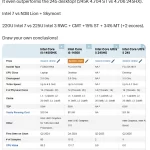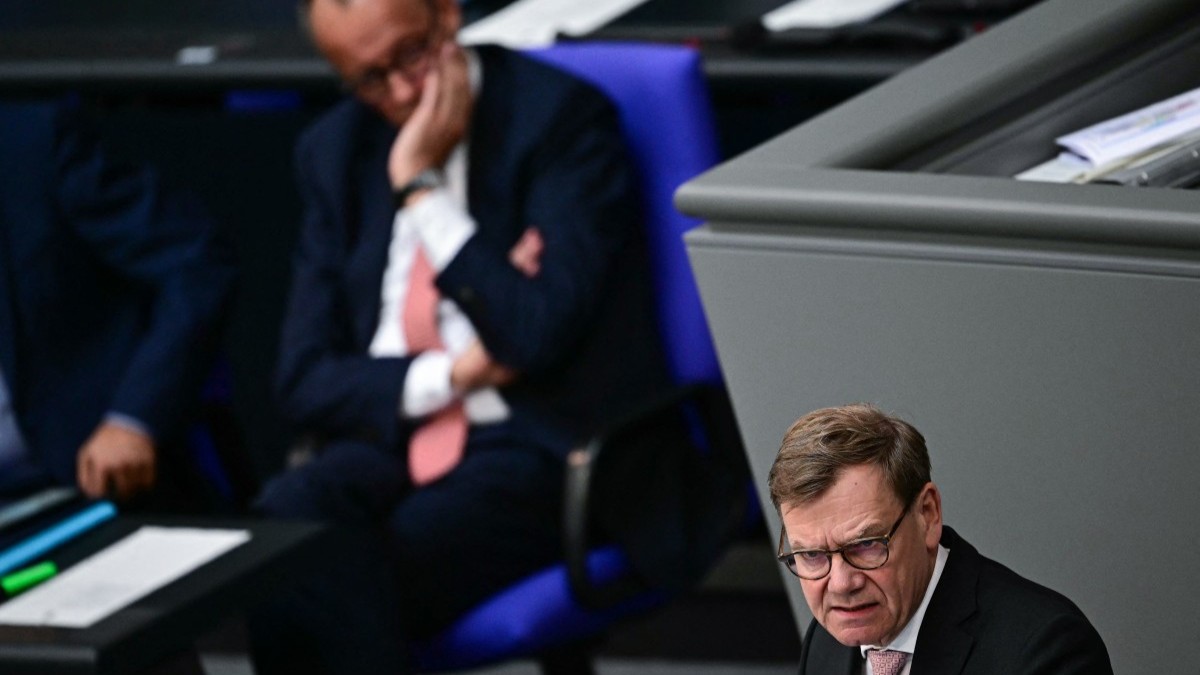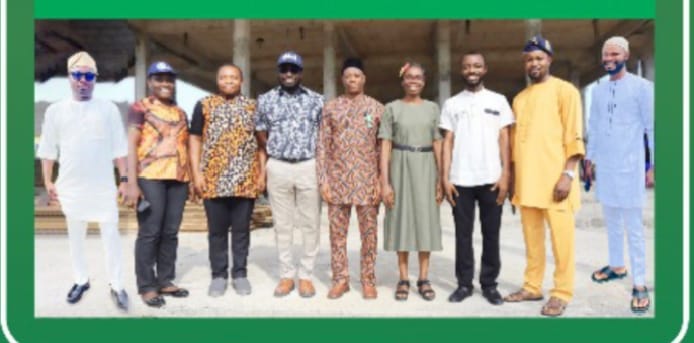The Federal High Court in Abuja, on Friday, ordered the Economic and Financial Crimes Commission (EFCC) and five other security agencies to file their defence in a suit instituted by businesswoman, Aisha Achimugu, to stop her planned arrest and detention.
The suit seeks to block the execution of EFCC’s 28 March public notice declaring her wanted and requesting information that could lead to her arrest.
Ms Achimugu listed other security agencies that could be possibly involved in the execution of the public notice as defendants in the suits.
The other security agencies listed in the fundamental rights enforcement suit include the Nigeria Police Force (NPF), the Independent Corrupt Practices and Other Related Offences Commission (ICPC), and State Security Service (SSS).
The rest are the Nigeria Security and Civil Defence Corps (NSCDC) and the Nigerian Immigration Service (NIS).
The judge, Inyang Ekwo, gave the order following a complaint by Ms Achimugu’s lawyer, Kehinde Ogunwumiju, a Senior Advocate of Nigeria (SAN), that despite being served with the earlier order of the court, none of the respondents was in court to show cause why the applicant’s prayers should not be granted.
The News Agency of Nigeria (NAN) reports that Ms Achimugu had sued the six defendants via an ex-parte motion filed on 3 April and marked: FHC/ABJ/CS/626/2025.
She filed the suit days after the EFCC declared her wanted for criminal conspiracy and money laundering.
PREMIUM TIMES reported that prior to her being declared wanted, EFCC had obtained a court warrant to that effect after she fled Nigeria in the wake of her invitation by the anti-graft commission for interrogation.
‘Stop execution of arrest warrant’
But in her fundamental rights enforcement suit, she sought an order of interim injunction restraining the respondents from threatening or harassing her with arrest, detention and invasion of her “properties or threatening to impede her fundamental right to freedom of movement, liberty, privacy and properties.”
She also sought an order of interim injunction restraining the respondents from arresting, harassing, detaining or violating her right to life, freedom of movement, liberty, and/or all such other rights as guaranteed by Chapter 4 of the Constitution pending the hearing and determination of the originating motion.
Ms Achimugu prayed for an interim order restraining the respondents “from giving effect to the declaration dated 28 March 2025 wherein the applicant was declared wanted.”
The businesswoman equally sought an interim order restraining the respondents from taking any further steps in connection with the subject matter of the suit and maintaining status quo ante bellum or staying all actions pending the hearing and determination of the originating motion, among others.
‘Why EFCC should be allowed to arrest me’
Her lawyers presented 10 grounds to support her prayers.
She said that her declaration as a wanted person by the EFCC was unwarranted, unjustifiable, devoid of probable cause, and is calculated to discredit, humiliate, and subject her to public opprobrium, thereby causing irreparable harm to her reputation, personal dignity, and professional standing.
“As a direct consequence of the declaration made by the 4th respondent (EFCC), the applicant has suffered irreparable harm, including severe damage to her hard earned reputation, substantial disruptions to her business operations, financial losses, emotional distress, and social stigma.
“The adverse publicity and negative perception generated by the respondents’ actions have not only undermined her professional credibility but have also jeopardised existing business relationships, deterred potential investors and partners, and subjected the applicant to unwarranted public scrutiny and distress,” she said.
According to her, she is facing an immediate or imminent threat of arrest and other adverse actions by the respondents, which, if executed, will result in irreparable harm and breach her fundamental rights as guaranteed by Chapter 4 of the Constitution of the Federal Republic of Nigeria, 1999 (as amended).
The embattled businesswoman said granting the application is the only means to prevent the immediate and irreparable breach of her fundamental rights.
She said the grant of the reliefs sought against the respondents would not unduly prejudice public interest nor hinder the legitimate discharge of their statutory functions.
She prayed the court to grant her application in the interest of justice.
In the affidavit in support of the motion deposed to by Ifeanyi Otuya, who is said to be her brother, he said Ms Achimugu “is an internationally renowned industrialist, businesswoman, law abiding citizen and philanthropist whose exemplary leadership and commitment to empowering communities have earned her international recognition.”
He said as the Managing Director and Chief Executive Officer of Felak Concept Group, she oversees a consortium specialising in civil, structural, and transportation engineering.
“She also chairs SAM Oil and Gas Limited, one of the major players in the exploration, production, and distribution of petroleum products in Nigeria,” he said.
Mr Otuya said due to her significant health issues, Ms Achimugu travelled to the United Kingdom (UK) on 3 March to receive the necessary medical care.
He said the EFCC, on 4 March, issued a letter of invitation, inviting her to appear for ‘certain clarification’ in respect of an ongoing investigation.
“The applicant could not honour the invitation immediately because she was already in the United Kingdom to prepare for medical treatment,” he said.
Mr Otuya said, on 6 March, Ms Achimugu informed him that upon her arrival in the UK, her doctors requested specific medical documents essential for her treatment, which were securely stored in her personal safe in Nigeria.
He said Ms Achimugu had to return to Nigeria.
According to him, on 8 March, the applicant arrived in Nigeria to retrieve the aforementioned medical documents, and on 9 March, she returned to the UK.
He said since she would be unable to attend the EFCC’s scheduled invitation on 5 March, she briefed her lawyer, Darlington Ozurumba, to convey her inability to honour the invitation in writing to the commission.
He said on 5 March Mr Ozurumba wrote to the commission and on 12 March, another letter was written seeking a reschedule of the invitation to either 28 or 29 April.
Mr Otuya, however, said on 11 March, an EFCC official, in a WhatsApps message, told Ms Achimugu that her claim of being abroad was false and demanded her appearance on 13 March or be declared wanted.
He said unfortunately, the anti-graft agency, on 28 March, declared her wanted for alleged criminal conspiracy and money laundering.
He said when he drew Ms Achimugu’s attention to the publication, her already fragile state of health deteriorated further.
Prayer turned down
The applicant’s lawyer, Mr Ogunwumiju, had, on 7 April, moved the motion seeking an order temporarily halting the execution of the public notice.
But the judge, Mr Ekwo, did not grant the prayers.
Rather, the judge ordered that the respondents be put on notice to appear to show cause why the prayers should not be granted.
He then adjourned the case until 11 April (today).
Meanwhile, when the matter was called on Friday, no lawyer appeared for the respondents.
Mr Ogunwumiju, who also appeared for Ms Achimugu, informed the court that none of the respondents had filed any reply to his client’s application.
“The court made an order that they be served within 24 hours and we complied with some of them being served the same day,” he said.
The lawyer said he was ready to proceed since the respondents had failed to show cause.
But responding, the judge said, “I will give them one more opportunity.”
The judge then asked Mr Ogunwumiju what date Ms Achimugu would be returning to the country and the lawyer said on 29 April.
“I might have to bring you back on 28 April 2025 being the date the court is resuming since the applicant is coming back the next day,” Mr Ekwo said
In a ruling, the judge subsequently adjourned the matter until 28 April for the respondents to show cause.
He also directed that the hearing notice be issued and served on the respondents.
The case highlights the tendency of members of the elite class to seek judicial protection when facing investigations and potential prosecution.
Like Ms Achumugu, an ally of Governor Sanwo-Olu, these politically exposed persons can leverage their resources to hire top lawyers for court interventions. For several months last year, former Kogi State
Governor Yahaya Bello engaged in extensive legal efforts to avoid EFCC prosecution, filing cases in both his home state of Kogi and in Abuja to halt his trial.
Ultimately, he proceeded to trial after the courts he approached were unable to provide relief. He now faces money laundering and fraud charges at the Federal High Court in Abuja and the FCT High Court also in Abuja.
(NAN)
Support PREMIUM TIMES’ journalism of integrity and credibility
At Premium Times, we firmly believe in the importance of high-quality journalism. Recognizing that not everyone can afford costly news subscriptions, we are dedicated to delivering meticulously researched, fact-checked news that remains freely accessible to all.
Whether you turn to Premium Times for daily updates, in-depth investigations into pressing national issues, or entertaining trending stories, we value your readership.
It’s essential to acknowledge that news production incurs expenses, and we take pride in never placing our stories behind a prohibitive paywall.
Would you consider supporting us with a modest contribution on a monthly basis to help maintain our commitment to free, accessible news?
Make Contribution
TEXT AD: Call Willie – +2348098788999
© Premium Times









